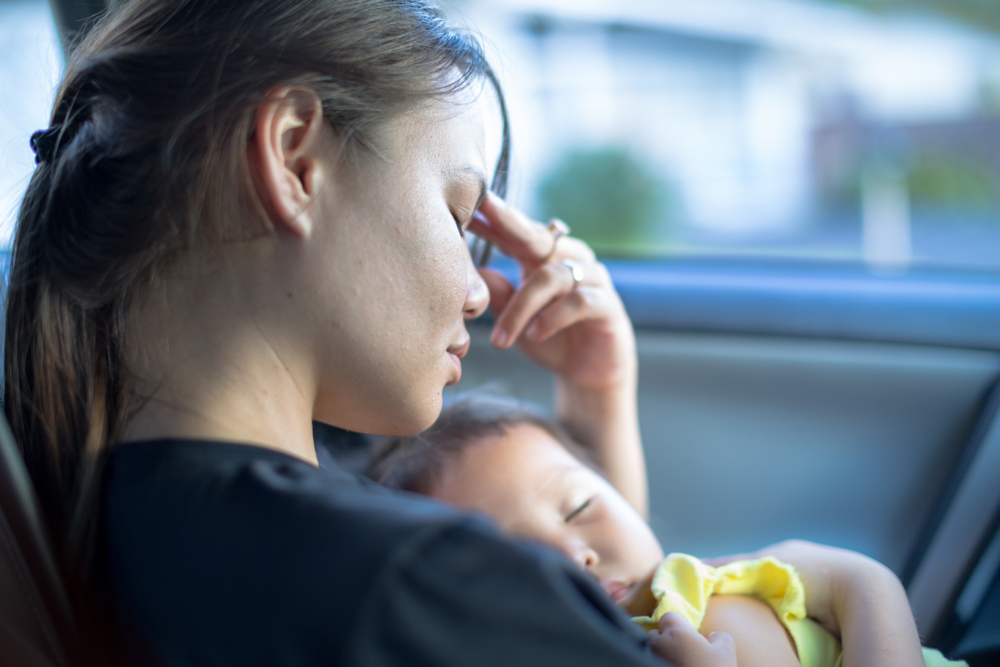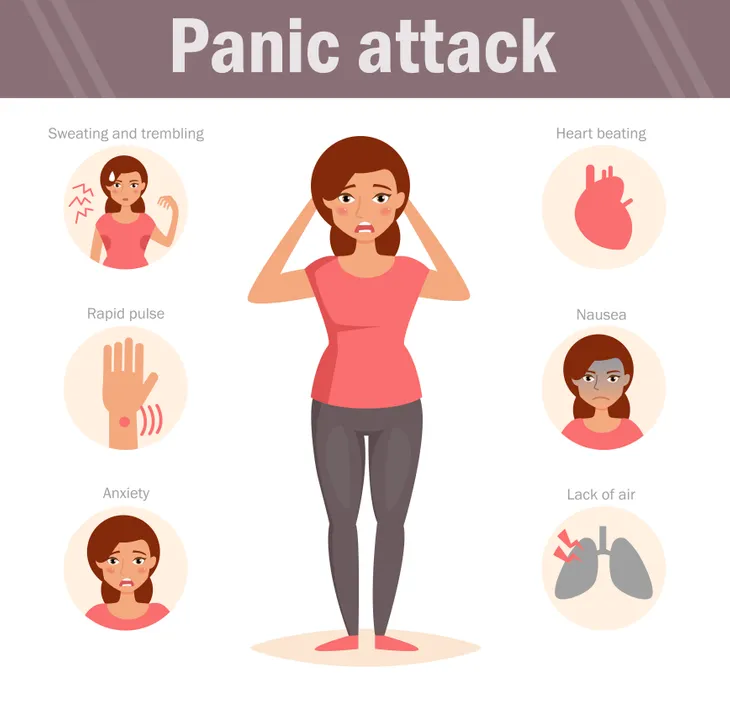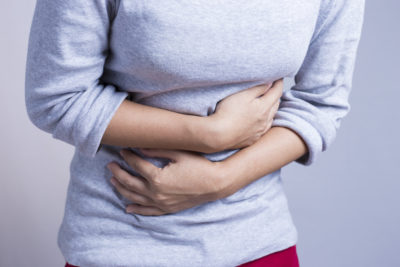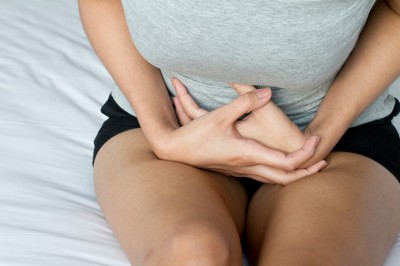Postpartum depression affects as many as one in four mothers in North America. It’s often confused with the “baby blues”—the emotional lows that come with the massive hormonal changes taking place in your body during and after pregnancy, leaving you fatigued, miserable, weepy, and irritable. However, with the lows of new motherhood also come highs to balance out the sleepless nights, baby weight, fear, and sore breasts.
The symptoms of postpartum depression are more intense and impactful than the “baby blues,” occurring over a long period and often hindering your ability to care for your baby and yourself.
1. Negative Feelings
Postpartum depression (PPD) is characterized by a host of negative feelings, such as depression, irritability, guilt, misery, self-consciousness, and hopelessness. It differs from the normal postpartum blues, as it is long-lasting and worsens over time, with new moms being unable to focus on the joys and positivity associated with motherhood.
2. Anxiousness
Anxiousness is often a lingering aspect of PPD and is particularly noticeable in women who aren’t often bothered by things. For instance, you may experience unexplained concern about your baby’s health or your health or worry about things that you have no control over.
3. Hostility Towards Your Baby
New moms who experience PPD will often find no joy in new motherhood. They may shun their new baby, feel trapped by the responsibilities of motherhood, or even feel hostile towards their new baby.
4. Extreme Guilt
The feelings of hostility or sadness associated with new motherhood often leaves postpartum moms wracked with guilt and hopelessness. The feelings of guilt and shame will often leave you feeling unworthy of being a mom and unable to care for your new baby.
5. Exhaustion
It’s common for new moms to feel exhausted and irritable. However, most are motivated by the joy of being a new mom and the bonding experience with their new baby. However, women suffering from PPD lack any motivation and often can’t see the joy in motherhood.
6. Panic Attacks
With extreme anxiety over issues that would normally not bother them, postpartum moms will often suffer with a rapid heartbeat, sweating, nausea, or even fainting due to panic attacks.
7. Appetite Changes
The constant worry, anxiety, and guilt that PPD causes is enough to leave most new moms nauseated, fatigued, with migraine headaches, and suffering from loss of appetite or stress eating and severe stomach pain and digestive upset.
8. Lack of Sex Drive
It’s common for most women to experience a lack of sex drive in the months after giving birth due to weight gain, bloating, and body image issues. Let’s face it, the extreme fatigue and physical attention required to carry, breastfeed, rock, soothe, and diaper your new baby won’t put you in the mood. However, if this lasts past a few months of getting used to new motherhood, you may be suffering from PPD.
9. Worsening Depression
PPD will affect each new mom differently. However, in each case, it’s characterized by feelings and actions that are out of character for that particular woman, such as loss of motivation, hostility, guilt, and extreme hopelessness that remain constant and just get worse over time. (Learn more in this article on Important Facts About Depression in Women).
10. Thoughts of Harming Yourself or Baby
In the most severe cases, PPD can turn into postpartum psychosis, a very serious mental illness that manifests in thoughts of hurting yourself or harming your baby. If you have these types of thoughts, talk to your doctor immediately.













